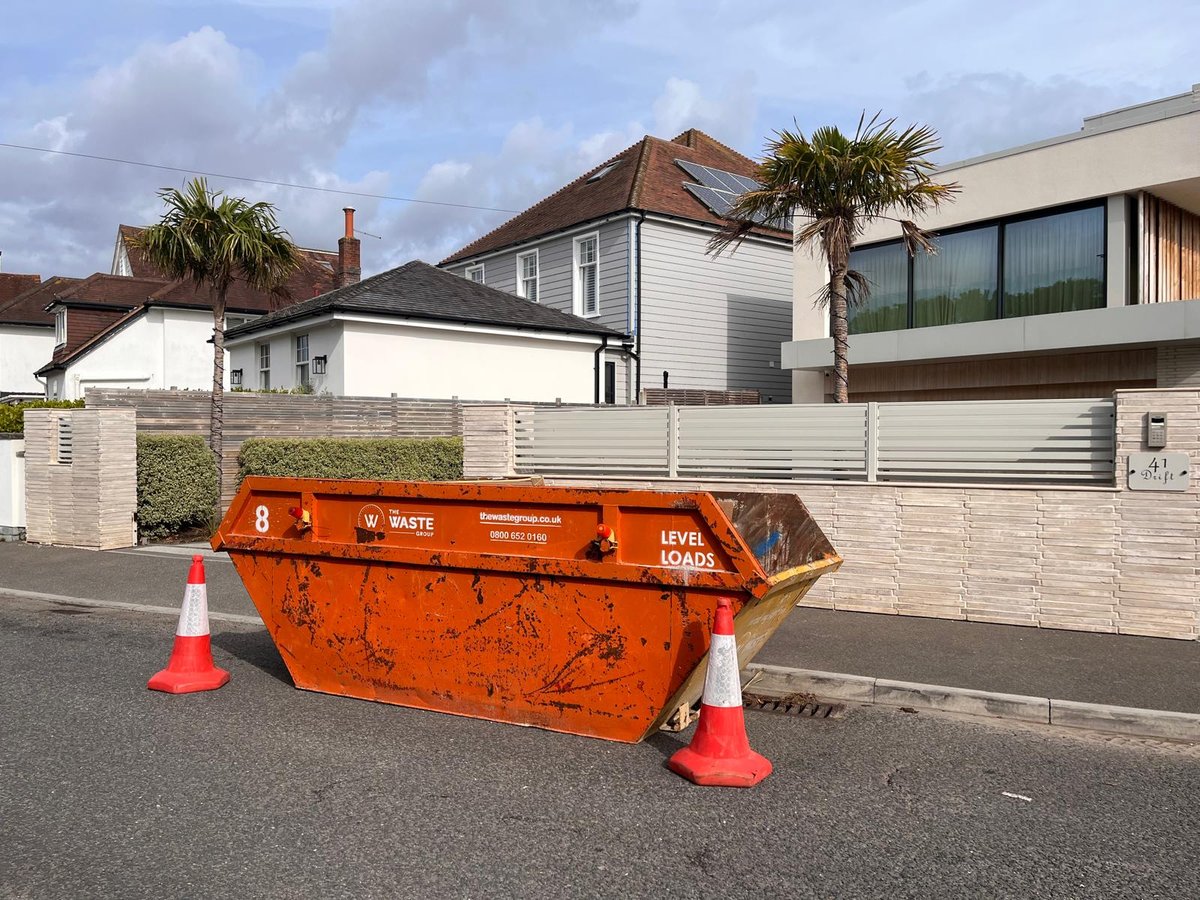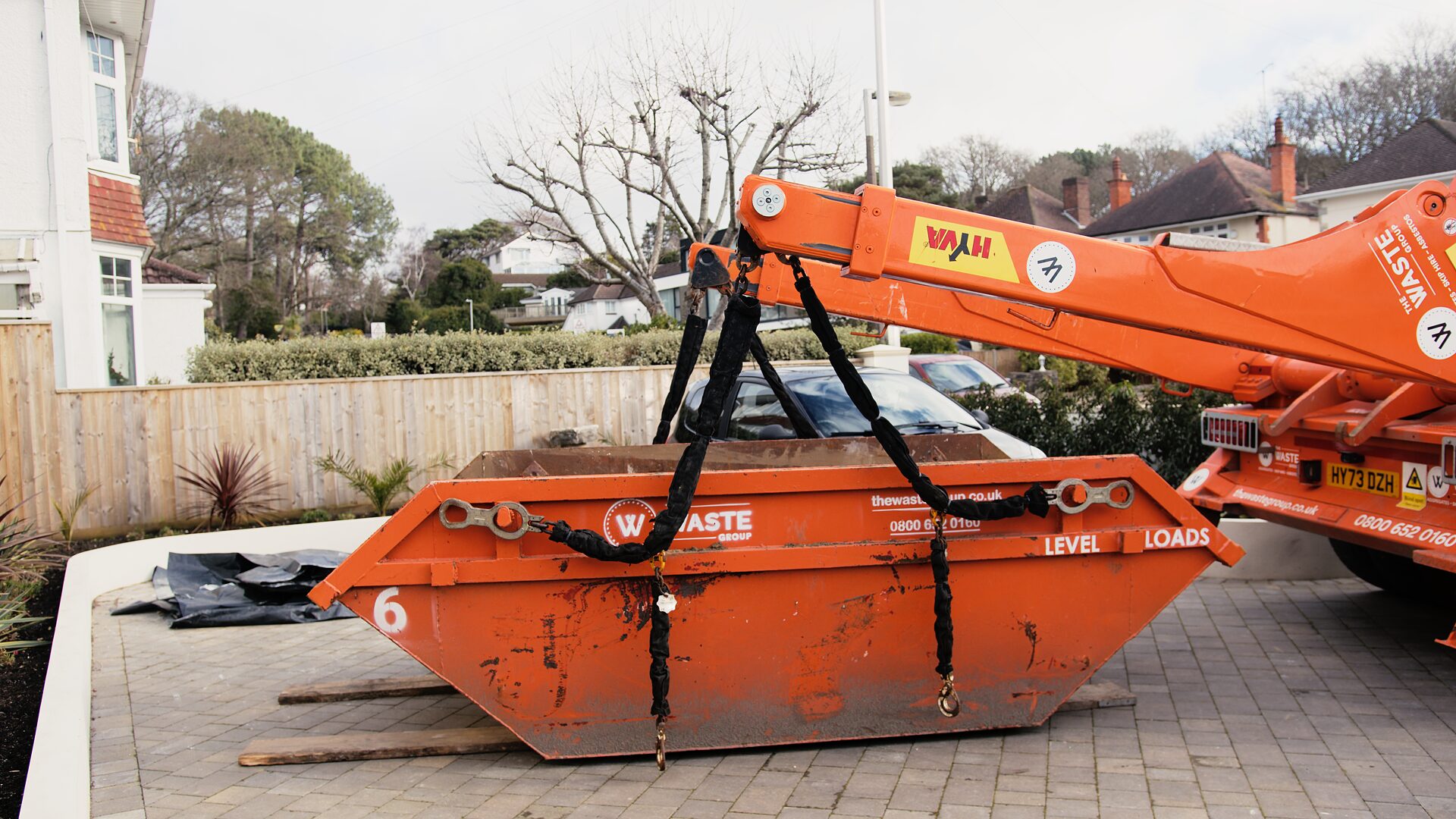UK Skip Hire Near Me Prices Explained
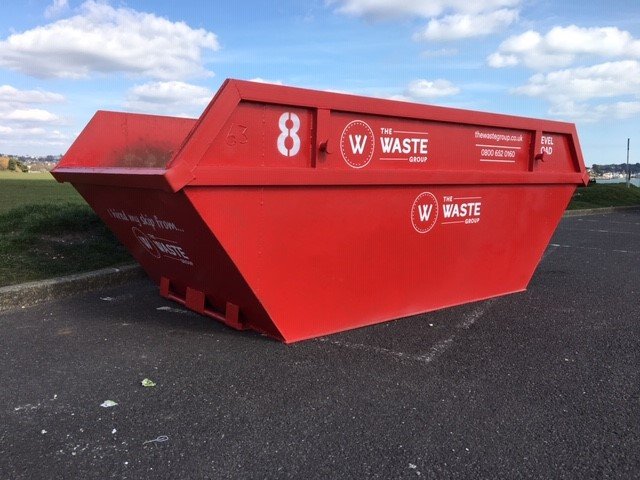
UK Skip Hire Near Me Prices Explained
So, you’ve typed “skip hire near me prices” into your search bar and you just want a straight answer. Let’s cut to the chase. For a standard 6-yard builder’s skip, the one you see on most driveways, you’re generally looking at somewhere between £250 and £400. If you’ve only got a small amount of waste, a 2-yard mini skip is a better fit, usually setting you back £120 to £200.
These figures give you a decent ballpark to start with, but it’s important to remember that a few different things can nudge your final quote up or down.
Your Quick Guide To UK Skip Hire Prices
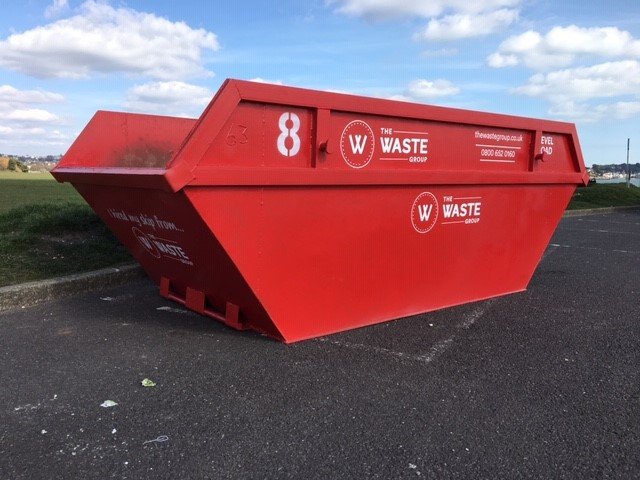
Getting your head around the average cost of hiring a skip is the first step to keeping your project budget on track. It’s a bit like booking a hotel room – the size determines the base rate, but your final bill can change depending on the location, how long you need it, and any extras you add on. The same logic applies perfectly to skip hire.
Your quote is more than just the price for a big metal box. It’s an all-in-one service that covers the drop-off, the collection when you’re done, and perhaps most importantly, the responsible disposal of all your rubbish. This is why you’ll see prices vary from one company to another, even if they’re just down the road from each other.
Average UK Skip Hire Prices By Size
To help you get a clearer picture, we’ve put together a simple breakdown of what you can typically expect to pay for the most common skip sizes here in the UK.
Average UK Skip Hire Prices By Size
This table summarises the typical cost ranges for the most common skip sizes available for hire across the UK.
| Skip Size (Cubic Yards) | Common Use | Average Price Range (£) |
|---|---|---|
| 2-Yard Mini Skip | Small garden clear-outs, minor DIY jobs | £120 – £200 |
| 4-Yard Midi Skip | Kitchen or bathroom refits, larger garden projects | £180 – £300 |
| 6-Yard Builder’s Skip | General construction waste, house clearances | £250 – £400 |
| 8-Yard Maxi Skip | Large renovations, bulky waste | £320 – £500 |
Just remember, these are average figures. Your location plays a massive role. For instance, hiring a skip in the middle of London will almost always be more expensive than in a smaller town, simply because of higher running costs and different council fees.
The key is to see these prices not as fixed figures, but as a starting point. Your final quote will be shaped by your project’s unique requirements, from the type of waste you’re disposing of to whether you need a permit from the local council.
Looking ahead, forecasts for 2025 suggest that skip hire prices will remain competitive, with most experts predicting minor tweaks rather than any shocking price hikes. Market analysis right now shows a 4-yard midi skip sitting between £180 and £300, while the much larger 8-yard maxi skips can be anywhere from £320 to £500, depending on who you hire from and where you are in the country. If you’re planning a project for next year, you can find more information about expected price adjustments in 2025.
Choosing The Right Skip Size For Your Project
Picking the right skip size is one of the biggest factors in what you’ll end up paying. It’s a classic Goldilocks problem; go too small, and you’ll be stuck paying for a second skip. Go too big, and you’re just paying for empty space you don’t need.
Getting this right from the get-go is the key to getting the best value.
A great way to think about it is in terms of bin bags. A small 2-yard ‘mini’ skip is perfect for a weekend garden clear-out and holds around 20-30 bin bags. It’s a really cost-effective choice for those smaller DIY jobs.
On the other hand, if you’re ripping out a kitchen or clearing a small house, you’ll have a lot more to get rid of. For projects like that, a 6-yard ‘builder’s’ skip is usually the way to go, holding roughly 60-70 bin bags. There’s a reason it’s the most popular size – it hits that sweet spot between capacity and price for most home and small trade jobs.
Matching The Skip To The Task
The best thing you can do is take a moment to realistically figure out how much waste you’re actually going to create. A good rule of thumb is to slightly overestimate rather than underestimate. It’ll save you the costly headache of having to order a second skip later on.
Here’s a quick guide to help you picture what fits where:
- Mini Skips (2-4 yards): These are your best bet for small-scale projects. Think clearing out a single room, a decent garden tidy-up, or getting rid of old soil. A 4-yard midi skip can hold about 30-40 bin bags.
- Builder’s Skips (6-8 yards): The real workhorse of the skip world. These are ideal for bigger renovations, construction rubble, bulky waste from house clearances, and major garden overhauls. An 8-yard skip can handle up to 80 bin bags.
For an even more detailed breakdown, you can learn more about what size skip you might need in our dedicated guide. It’ll help you make a confident choice and make sure you’re not overspending.
The goal is to book a skip once and get it right. Taking a few moments to properly estimate your waste volume will have a direct impact on the “skip hire near me prices” you end up paying.
This infographic shows just how skip size, the hire duration, and the distance to the disposal site are all connected.
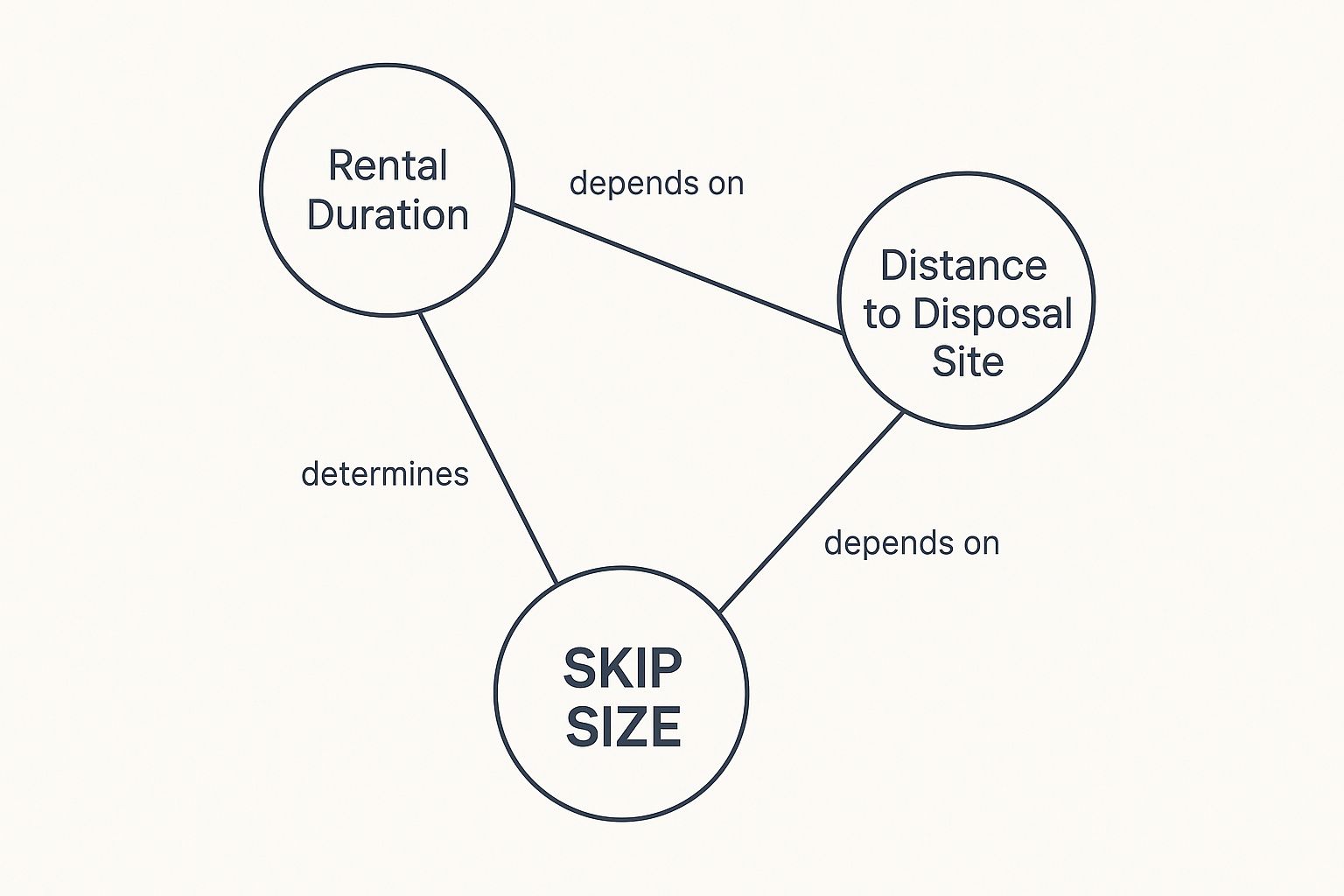
As you can see, these three elements all play a part in shaping the final price. It really highlights why there’s no such thing as a one-size-fits-all quote. Each factor has to be weighed up to understand your specific cost.
What Really Determines Your Skip Hire Price
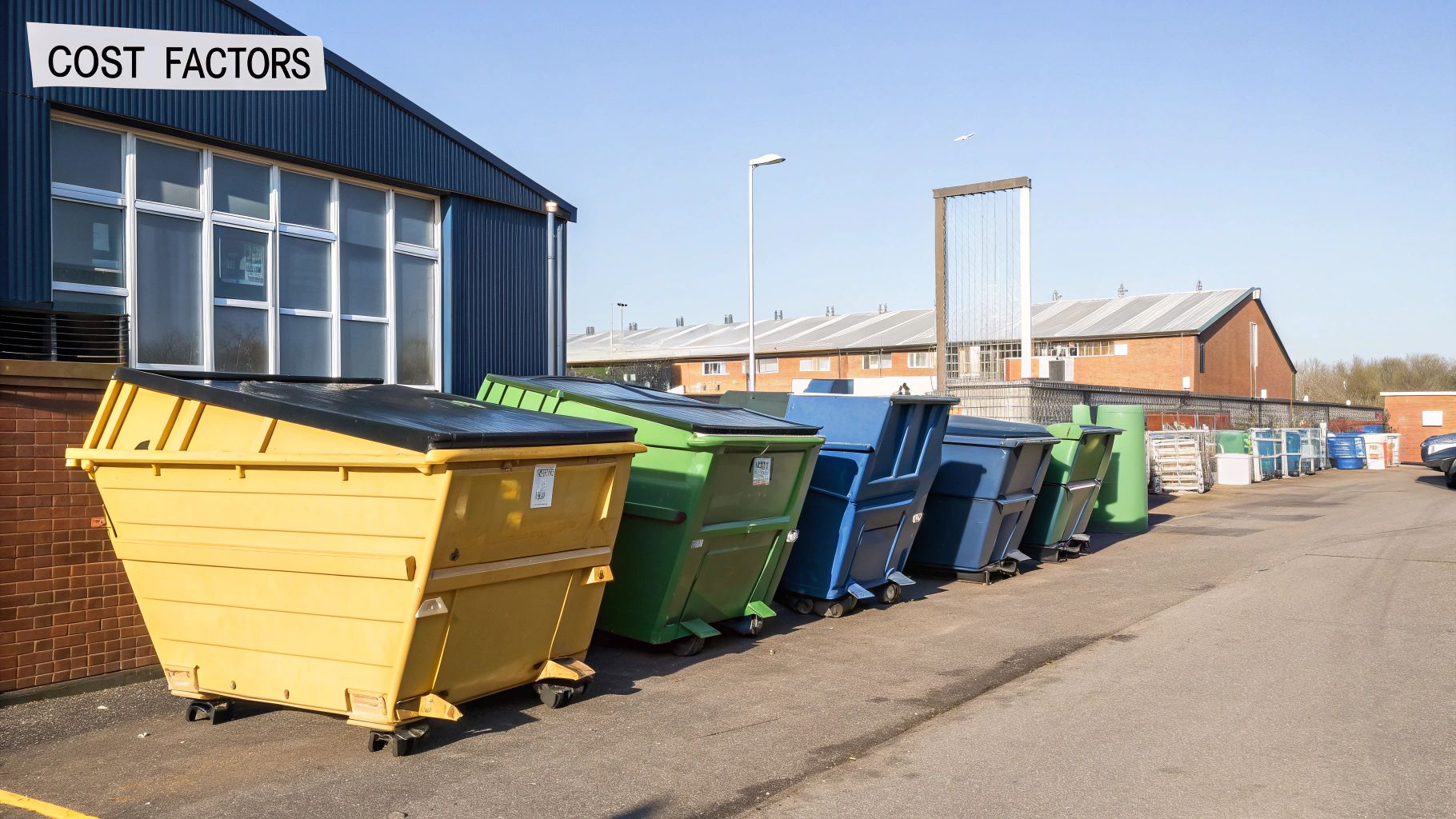
While the size of the skip sets the baseline for the cost, several other key factors can swing your final quote one way or the other. Think of it like a restaurant bill: the main course has its price, but the drinks, sides, and service charge all add up. Getting to grips with these variables is the secret to properly understanding any “skip hire near me prices” you come across.
One of the biggest influences is what you’re actually putting in the skip. It’s often cheaper to get rid of inert waste—things like soil, rubble, or concrete—than it is to dispose of mixed general waste from a house clearance. Why? Because inert materials are far easier and less costly for waste facilities to process or recycle.
On the other hand, a skip jumbled up with wood, plastic, old furniture, and other household bits and bobs requires a lot more hands-on sorting at the waste transfer station. All that extra work is naturally reflected in a higher price for the hire.
Uncovering The Additional Costs
Beyond the waste itself, a few other things can add to your bill. People sometimes think of these as “hidden” costs, but they’re just standard parts of the process you should know about from the get-go.
- Skip Permits: This is a big one. If you don’t have a private driveway and need to place the skip on a public road or pavement, you’ll need a permit from your local council. Your skip hire company will sort this out for you, but the cost—which varies massively from one council to another—is passed directly on to you.
- Hire Duration: Most standard quotes cover a hire period of one to two weeks. If your project runs over and you need to hang onto the skip for longer, be ready for extra weekly rental fees to kick in.
- Wasted Journeys: If the delivery driver can’t drop off or collect the skip because of an obstruction (like a parked car), you may be charged a fee for the wasted trip. Always make sure the access is clear!
Understanding these additional charges is crucial for accurate budgeting. A seemingly cheap initial quote can quickly become more expensive if it doesn’t account for necessary extras like a road permit or an extended hire period.
How Your Skip Hire Quote Is Calculated
To make it clearer, here’s a quick breakdown of the main factors that go into building your final skip hire price.
| Cost Factor | Description | Potential Impact on Price |
|---|---|---|
| Skip Size | The physical dimensions of the skip. | High: Larger skips cost more to hire, transport, and process. |
| Waste Type | What you’re throwing away (e.g., soil, mixed general, wood). | High: Inert waste is cheaper; mixed or hazardous waste is more expensive. |
| Location | Your postcode and local council area. | Medium to High: Prices vary due to local landfill taxes, fuel costs, and wages. |
| Skip Permit | A council licence to place a skip on public land. | Medium: Can add a significant, non-negotiable cost if required. |
| Hire Duration | The length of time you need the skip. | Low to Medium: Standard hire is 1-2 weeks; extra time incurs extra fees. |
Knowing about these elements puts you in a much better position to compare quotes and avoid any nasty surprises on your final invoice.
Location And Market Dynamics
Ever wondered why hiring the exact same size skip in London often costs more than in Manchester? It all comes down to local operating costs. Things like regional landfill taxes, fuel prices for the lorries, and staff wages are different all over the country, and these directly affect the prices you’re quoted.
It’s also worth remembering that the UK skip hire market doesn’t exist in a bubble; it’s closely tied to the construction sector. For example, recent supply chain issues have pushed up the cost of building materials, which has a knock-on effect. As construction firms adjust their budgets, it influences how much waste is produced and how it’s managed, which can ripple through to skip hire pricing.
Getting your head around the details of skip hire pricing is key. Many of the factors are similar to those in the wider plant and tool hire world, and you can get a wider perspective by reading a broader guide to construction equipment hire. For a complete overview of all the elements that make up your final bill, check out our detailed guide explaining how much it is to hire a skip.
How The Local Market Shapes Your Quote

When you start searching for “skip hire near me prices,” you’ll probably see that quotes can be all over the place, even for companies in the same town. This isn’t random. It’s a direct result of what’s happening in your local market.
Think of it like buying a pint of milk. It’s going to cost you more in a little city-centre shop than it will at a massive supermarket on the edge of town. Why? Rent, delivery costs, and local competition. The same logic applies to hiring a skip. A company dealing with city traffic and higher running costs will have a completely different price list to one based in a quiet rural area. Getting your head around these local factors is the key to understanding the quotes you’re given.
Competition And Local Pricing
The amount of competition in your area is a massive driver of price. If you’re in a town with dozens of skip companies all fighting for your business, you’re in luck. Prices often get pushed down as they try to outdo each other with the best rates. This gives you more choice and a bit of bargaining power.
But it’s a tough game. The UK skip hire market only saw a tiny sales growth of 2.1% last year. With competition so fierce, around 121 companies have actually been operating at a loss for two years straight. This pressure means some firms might throw out unbelievably low prices just to keep their lorries on the road, which adds to the huge price differences you see. You can get a better sense of these skip hire market conditions and how they affect the industry.
A word of warning: if a quote seems too good to be true, it probably is. A rock-bottom price can be a red flag that a company is cutting corners on important things like proper waste processing, insurance, or even staff training. That could spell trouble for you later on.
Landfill Taxes And Recycling Efficiency
Another huge local factor is the cost of actually getting rid of the waste. Every part of the UK has its own landfill tax rates – a government charge for every tonne of rubbish buried in the ground. A skip company operating in a region with high landfill taxes has no choice but to pass some of that cost on to you.
This is where a company’s recycling game can make a real difference to your wallet.
- High Recycling Rates: A firm that’s invested in good sorting facilities can rescue a huge chunk of waste from landfill. By recycling materials like wood, metal, and soil, they don’t have to pay as much in landfill tax.
- Lower Disposal Costs: They can then pass these savings on to their customers. It’s why a company with a brilliant 95% recycling rate can often beat the price of a competitor who only manages to recycle 70%.
So, choosing a skip hire company that’s serious about recycling isn’t just good for the planet; it’s a smart move for your bank balance. It means you’re working with an efficient, modern business that can give you better value while handling your waste the right way.
Practical Ways To Lower Your Skip Hire Costs
Knowing what goes into skip hire prices is one thing, but using that knowledge to actually save a bit of cash is another. With a few smart moves, you can bring down your final bill without cutting corners on service. It’s all about working smarter to get the best deal for your project.
Thinking ahead is your secret weapon here.
Booking your skip well in advance, especially avoiding peak times like bank holiday weekends, can often land you a better price. It’s a bit like booking a flight – last-minute demand nearly always pushes costs up. A little planning goes a long way.
Get Competitive And Compare Quotes
You should never, ever settle for the first quote you get. The golden rule for getting a fair price is to contact at least three different local skip hire companies. This simple step gives you a clear picture of the going rate in your area and puts you in a much stronger position.
When you ring around, make sure you’re comparing apples with apples. Ask each company for an all-inclusive price that covers:
- Delivery and collection.
- The standard hire period (usually 7-14 days).
- Waste disposal and recycling costs.
- VAT.
This way, you avoid any nasty hidden surprises later on. While it’s tempting to just jump at the lowest figure, it’s really important to understand that the cheapest quote isn’t always the best value. As we explain in our guide on why the lowest price is not always best, an unusually low price can sometimes be a red flag for poor service or irresponsible waste disposal.
Master The Art Of Filling Your Skip
How you load your skip has a direct impact on your wallet. Overfilling is a big no-no; it’s not only dangerous but will also hit you with expensive penalties. All skips must be filled to a level load, which means nothing should be poking out above the top edge. Drivers can legally refuse to collect an overfilled skip, and that could leave you facing extra charges.
To really maximise the space you’ve paid for, just follow these simple steps:
- Break It Down: Take apart bulky items like old wardrobes or tables before they go in. This makes a massive difference and cuts down on wasted space.
- Start Flat, Go Heavy: Lay flat items like doors or wooden panels at the bottom first. Then, add your heaviest materials like rubble and soil on top of that base.
- Fill The Gaps: Use all the smaller, lighter bits of waste to fill in any empty nooks and crannies. This creates a really compact and stable load.
By loading your skip efficiently, you ensure you get the maximum value out of every cubic yard you’ve hired. A well-packed skip can often hold significantly more than one that’s been filled haphazardly.
Separate Your Waste Beforehand
One of the most effective ways to save money is one that people often overlook: sorting your waste before it even touches the skip. Some companies will offer you a much better price for skips containing just a single type of waste, like 100% soil or 100% hardcore rubble.
The reason is simple. “Clean” or inert waste is far easier and cheaper for them to process and recycle. It doesn’t need any manual sorting back at the waste transfer station. If you’ve got a huge amount of one material from a big garden project or some demolition work, always ask your hire company if they do a reduced rate for a dedicated skip. It could save you a tidy sum.
Your Skip Hire Questions Answered
Hiring a skip might seem simple enough, but a few common questions always crop up, especially if it’s your first time. Getting your head around these before you book is the best way to make sure your project goes off without a hitch and you understand exactly what you’re paying for.
We’ll run through everything from what you can legally chuck in your skip to where all that rubbish actually ends up. Knowing this stuff puts you in control, helping you dodge any nasty surprises or extra charges.
What Can I Not Put In A Skip?
This is the big one. Getting this wrong can cause some serious headaches, not to mention a lighter wallet. There are strict rules around hazardous waste, and for very good safety and environmental reasons, these items are banned from a standard mixed-waste skip.
As a general rule, you can’t put these items into your skip:
- Plasterboard: This is a definite no-go unless you’ve hired a skip specifically for plasterboard only.
- Asbestos: A highly hazardous material that needs a specialist team for removal and disposal.
- Electricals (WEEE): Think fridges, TVs, computers, and microwaves. These all need to be disposed of separately.
- Liquids: This covers paint, oils, solvents, and any other chemicals.
- Tyres and Batteries: Both of these have their own specific recycling channels.
If you throw prohibited items into your skip, the company might refuse to collect it or hit you with some hefty extra fees. Always, always double-check the company’s specific list of banned materials before you start loading it up.
Do I Need A Permit For A Skip?
You only need a skip permit if any part of the skip is going to sit on public land. That means a public road, a pavement, or even a grass verge. If you can fit the skip entirely on your own private property, like your driveway or in your garden, then no permit is required.
If you do need one, your skip hire company will almost always sort the permit out with your local council for you. The council’s fee will be passed directly on to you, though. These costs can vary wildly from one council to the next, so it’s a really important cost to clarify when you book.
How Long Is A Standard Skip Hire?
A typical hire period for a skip is somewhere between 7 and 14 days. For most home projects, like a garden clear-out or a small renovation, this is usually plenty of time.
Most companies are pretty flexible, however. If you get the job done early, you can often give them a call to arrange a quicker collection. On the flip side, if the project is taking longer than you thought, you can usually extend the hire period. Just be aware that extensions might come with an extra weekly rental fee, so it’s smart to ask about those potential costs upfront.
Once your skip is collected, it’s taken to a licensed waste transfer station. Here, the contents are meticulously sorted to recover as much recyclable material as possible, with reputable firms often diverting over 90% of waste from landfill.
For a deeper dive into the broader world of waste management, which is often what leads to hiring a skip in the first place, you might find this guide to construction waste disposal useful. It offers some great insight into what happens long after your waste leaves your property.
Ready to manage your waste the easy way? The Waste Group offers reliable, next-day skip hire with a price-match guarantee. Get your instant quote and book online today at https://www.thewastegroup.co.uk.
